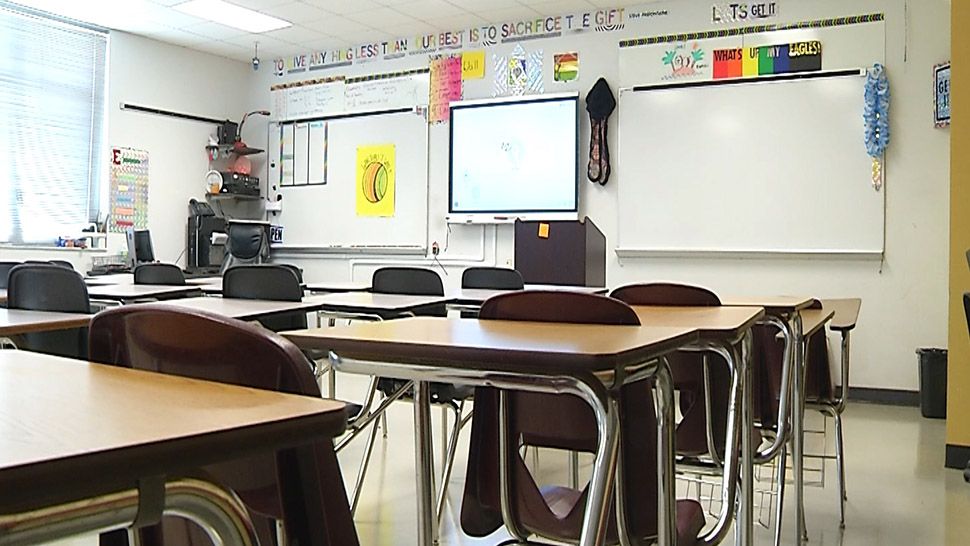ORLANDO, Fla. -- Orange County Public Schools is asking voters to extend a property tax millage for an additional four years.
- Orange County Public Schools wants property tax millage extension
- District says millage will preserve programs like art, music and dance
- Request will appear on the Aug. 28 primary ballot
- DECISION 2018 VOTING GUIDE: Candidates, county-by-county resources, FAQs, more
The one-mill request will only appear on the Aug. 28 ballot. It needs 50 percent plus 1 of the vote to pass.
“Right now, based on the additional one mill, we are afforded the opportunity to do things like add additional student programs, to be able to invest in teachers and retain highly qualified teachers,” said Scott Howat, Orange County Public Schools’ chief communications officer.
The district says the millage will preserve non-required academic programs such as art, dance, and music. It also provides funding for athletic programs.
The district says the measure generated $116 million last year, and could bring in upwards of $130 million in the next year.
Howat says the millage is crucial because only 51 percent of the district’s near $2 billion budget comes from the State of Florida. The rest of the budget is generated from “local funding sources” such as property taxes.
“The state unfortunately has not adequately funded public education for many years,” said Nancy Robbinson, a member of the Orange County School Board. “We took a big hit with the recession that hit back in 2008. We have just barely started to see numbers come back to pre-recession dollar amounts for our students.”
Voters first approved the one-mill in 2010, as the district was forced to make across-the-board budget cuts. Voters renewed the measure for an addition four years in 2014.
Robbinson said programs beyond the core requirements help improve educational success.
“It’s important to teach the whole child,” Robbinson said. “We don’t want to just teach them the basic standards requirements, we want to teach the whole child.”
Howat said cuts are possible if the measure is not extended, adding the district is growing by about 5,000 students per year. While that would mean more funding from the state, Howat said the average per student funding would drop by about $650 if the millage is not renewed.
“The amount we get (from the state) would not be increasing to help pay for inflationary costs, salaries, utilities, additional programs, those type of things,” Howat said.



